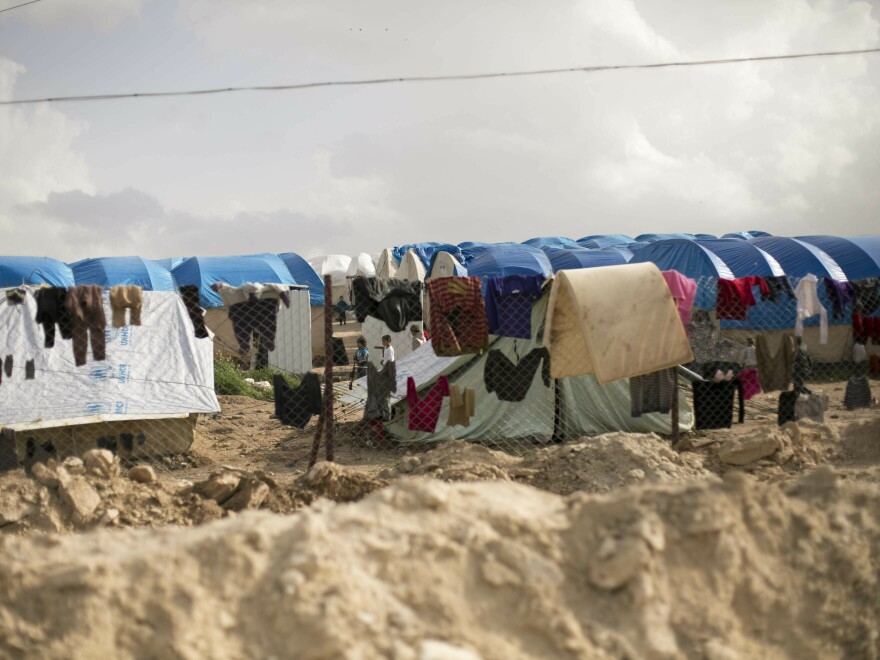The U.N.'s human rights chief says there are only two options for dealing with the tens of thousands of suspected ISIS fighters currently detained in Syria and Iraq: They must be either tried or let go, and their families cannot be detained indefinitely.
Some 55,000 suspected ISIS fighters and their family members have been swept up and detained since ISIS was effectively toppled and lost control of its territory, the U.N. says.
"It must be clear that all individuals who are suspected of crimes — whatever their country of origin, and whatever the nature of the crime — should face investigation and prosecution, with due process guarantees," U.N. High Commissioner for Human Rights Michelle Bachelet said. She also warned that flawed trials "can only serve the narrative of grievance and revenge."
"And the continuing detention of individuals notsuspected of crimes, in the absence of lawful basis and regular independent judicial review, is not acceptable," Bachelet added.
The U.N. official highlighted the ISIS detainee issue during her remarks at a session of the Human Rights Council, saying it was not receiving the attention it deserves.
As an example, Bachelet cited the al-Hol camp in northeastern Syria, where some 11,000 people who are believed to be the wives and children of foreign ISIS fighters are living in what she called "deeply substandard conditions."
"Foreign family members should be repatriated, unless they are to be prosecuted for crimes in accordance with international standards," Bachelet added.
NPR's Jane Arraf recently visited the al-Hol camp, where she was told that at least 200 children have died either on the way there or in the camp, oftentimes of malnutrition or hypothermia.
"We are continuously dealing with cases of malnutrition," Massoud Ramo of the Kurdish Red Crescent told NPR.
Many countries have appeared reluctant to repatriate their own citizens who were detained in Syria and Iraq.
The U.K. is perhaps the most dramatic example, as it has stripped a young woman named Shamima Begum of her citizenship. Begum was 15 when she ran away to Syria with two friends to join the Islamic State, and she has since said she wants to return to the U.K. When she was found in the al-Hol camp in northern Syria, Begum said two of her children had died, and a third has since died.
"Despite the complexity of these challenges, rendering people stateless is never an acceptable option," said Bachelet.
The U.N. rights expert was particularly critical of making children stateless, saying, "To inflict statelessness on children who have already suffered so much is an act of irresponsible cruelty."
Other countries have taken different approaches. To date, the U.S. has returned three American women and 10 children from northern Syria.
When the U.S. repatriated the latest group earlier this month, NPR's Ruth Sherlock cited a State Department spokesperson who said that "appeals [lodged] by alleged American citizens to return to the U.S. are being looked at on a case-by-case basis."
Copyright 2021 NPR. To see more, visit https://www.npr.org. 9(MDA5NTM4MTIyMDE0MTg3NDc2MTVlZjdmNQ001))






